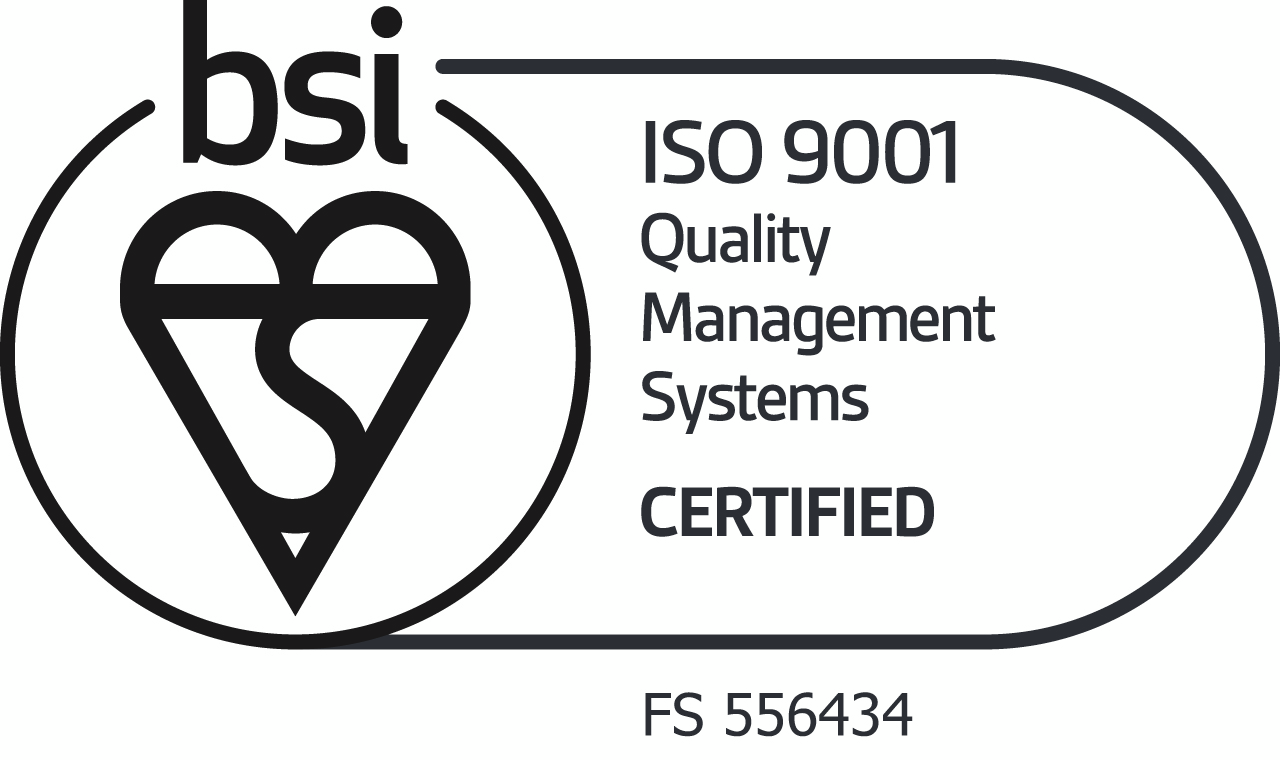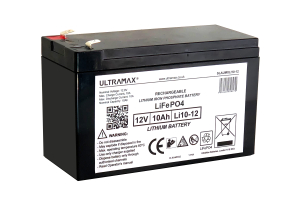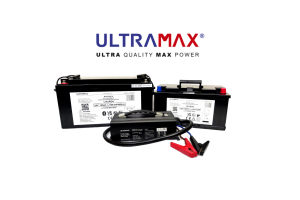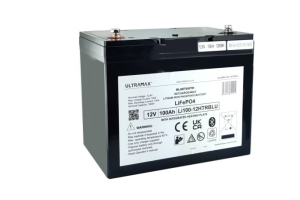Everything you need to know about Lithium batteries
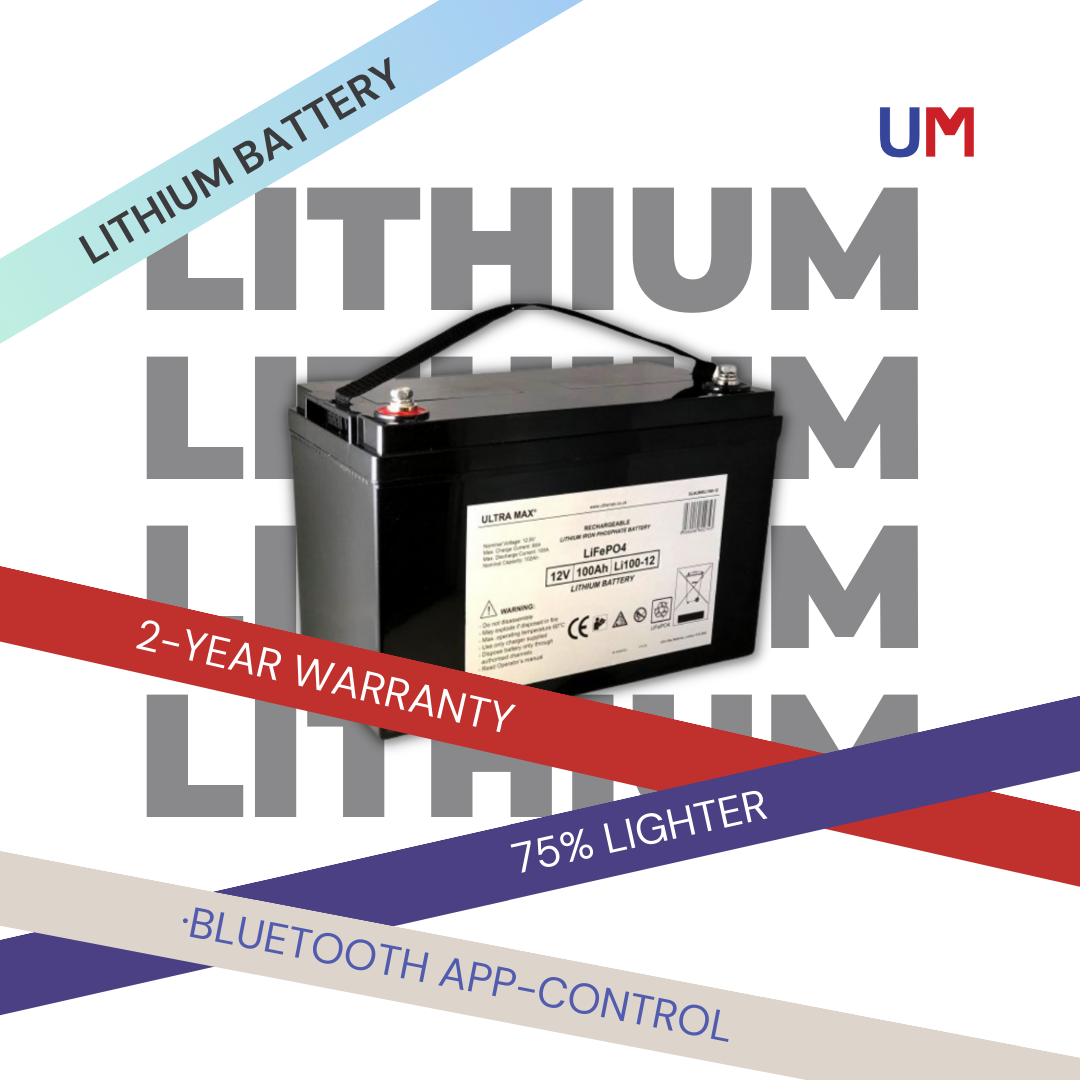
Everything you need to know about lithium batteries
Lithium Batteries - How they work, Uses, Advantages, Disadvantages & More
Lithium batteries and their use:
Lithium batteries have lithium ions as their main component. There are two types of lithium batteries, rechargeable and non-rechargeable. The rechargeable batteries are the ones that can be charged and discharged multiple times and are hence typically used in caravans and motorhomes, portable consumer electronics, electric vehicles, mobility scooters, uninterruptible power supply batteries, solar battery packs, EVs, battery-operated construction vehicles like cherrypickers, and so on.
The non-rechargeable are designed to be used once and then discarded. They are used in everyday household items like remote controls, keys, kids' toys, and pacemakers.
On ultramax.co.uk and batterymasters.co.uk you can find 3 types of lithium batteries: LiFePO4 Batteries, Lithium-Ion Batteries, NCM Lithium Batteries
Are lithium batteries dangerous?
Lithium batteries have a high charge density and can hold more power than other types of batteries. Metallic lithium is highly reactive and can ignite or explode when it comes in contact with water or moisture in the air. This is why lithium batteries use lithium compounds like lithium iron phosphate LiFePO4, lithium cobalt oxide, and, lithium manganese oxide instead of metallic lithium as the anode material, as they are much safer and more stable.
You can find LiFePO4 batteries here.
Although their high power capacity makes non-rechargeable lithium batteries very useful, the fact that they cannot be easily or even safely recharged meant that many companies began to look for other alternatives. The disposable batteries many of us have around our homes are not very good for the environment, which is why many people and companies prefer to use Lithium-ion batteries.
Lithium Battery Lifespan:
The lifespan of a lithium battery largely depends on its usage patterns, particularly how often it is used and the speed of heavy discharges. Even batteries of the same type may have vastly different lifespans: a battery subjected to daily heavy discharges may begin to lose efficiency after just a few months, while a battery that only experiences occasional light discharges could potentially last for many years. In the case of a typical motorhome or caravan, a high-quality 100Ah lithium battery that's been properly installed could theoretically remain functional for 10 to 20 years, or even longer.
Lithium Battery Applications:
Automotive Batteries
Caravan / Motorhome / RV Batteries
Golf cart / Golf trolley batteries
Uninterruptible Power Supply Batteries
Wheelchair / Mobility Scooter Batteries
Lithium Battery Storage:
Store batteries in a cool, dry place, away from direct sunlight, moisture, and heat sources. Exposure to high temperatures can reduce the battery's lifespan and increase the risk of fire or explosion.
Store batteries at a partial charge: Lithium batteries should be stored at a partial charge, typically between 40% and 60% of their maximum capacity. Storing batteries at a full charge or a low charge level for an extended period can damage the battery.
Use protective cases: Store batteries in a protective case or sleeve to prevent them from coming into contact with metal objects or other batteries, which can cause a short circuit.
Check batteries regularly: If you are storing batteries for an extended period, check them periodically to ensure they are still in good condition. Look for any signs of damage, such as swelling or leakage, and discard any damaged batteries immediately.
Lithium Battery Brands:
Lithium Battery Manufacturers:
Where can you buy lithium batteries?
Battery Masters
Amazon
Ebay
Tayna
Types of Lithium batteries on ultramax.co.uk
LiFePO4 Batteries
Lithium-Ion Batteries
NCM Lithium Batteries
Advantages of Lithium Batteries:
- High energy density: Lithium batteries have a high energy density, which means they can store a lot of energy in a small, lightweight package.
- Long lifespan: Lithium batteries can last several years, making them a cost-effective option in the long run.
- Low self-discharge rate: Lithium batteries have a low self-discharge rate, which means they can hold their charge for longer periods of time when not in use.
- Fast charging: Lithium batteries can be charged quickly compared to other types of batteries, which is especially useful for portable devices.
- Environmentally friendly: Lithium batteries are more environmentally friendly than other batteries because they do not contain toxic heavy metals such as lead or cadmium. Some lithium batteries are recyclable. To recycle your batteries contact us.
Disadvantages of Lithium Batteries:
- Flammability: Lithium batteries that are damaged, overcharged, or exposed to high temperatures can catch fire or explode. Metallic lithium is highly reactive and can ignite or explode when it comes into contact with water or moisture in the air. To curb this issue lithium compounds are used, as they are much more stable.
- Expensive: Lithium batteries can be more expensive than other types of batteries, which may make them less accessible to some consumers
- Complex manufacturing process: The manufacturing process for lithium batteries is complex and requires specialised equipment, which can add to the cost.
- Environmental problems: Non-rechargeable batteries are not environmentally friendly, as they need to be discarded after they run out.
Explore our range of UltraMax LiFePO4 Batteries!

